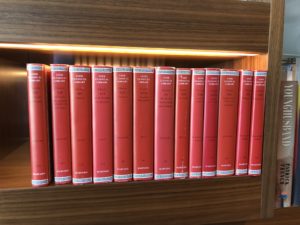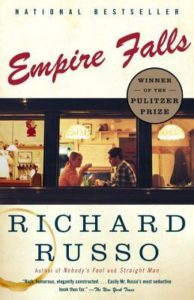THE BEST BOOK DATABASE YOU’VE NEVER HEARD OF
Abby Hargreaves talks about Novelist, a database that librarians use to recommend books to patrons. This database, which may be available to you through your local library’s web site, is especially good for finding recommendations on what to read next if you liked a particular book and would like to read more similar to it.
While NoveList only organizes fiction, there’s a companion database called NoveList Plus that includes nonfiction, too.
The Thing About Families and Thriller Writing
Because I love thrillers, I read a lot of descriptions of books in that genre. Here, thriller novelist David Bell explains why some many of those descriptions contain two elements: families and secrets.
It’s true that we thriller writers often exaggerate the problems and secrets that families deal with. Most families don’t experience murder, kidnapping, extortion, disappearance. (Some do, of course.) But so many times those wild, exaggerated crimes that occur in a thriller start with something small. Something ordinary. A secret kept. A promise broken. The smallest splash becomes a tidal wave.
And he offers a possible explanation of why readers love thrillers so much: “When they see the disasters that happen to fictional characters on a page, they feel relieved.” No matter how messed up our own family members might be, most of them are nowhere near as bad as the characters that inhabit the latest best seller.
Look, Read, Listen—What’s the Difference?
I’ve always insisted that listening to an audiobook “counts” as having read the book as long as you listen to the unabridged version. But in this piece author Betsy Robinson argues differently: “ audiobooks and books are as different as movies and books.”
A former playwright now turned novelist, Robinson believes that audio productions minimize “the value of the direct relationship between books and readers.” I agree with her analysis of the reading process, called reader-response theory or transactional reading, and I therefore agree with her in the case of people who fall asleep while listening or are “missing whole paragraphs when one of the kids spills his Cheerios.” Since I no longer have a child whose eating requires monitoring, I’m seldom distracted in that way. But if I do miss a chunk of the recording, I back track until I get back to something I remember, then relisten.
And for that reason, I will continue to include unabridged audiobooks in my yearly count of books read.
We Should All Be Reading Ancient Poetry Right Now
Here’s something we classics major have always known:
There is nothing like ancient poetry for making you reassess your priorities. Homer, Virgil, and Ovid can make you feel small and insignificant, but those feelings tend to pass and are worth enduring for the clarity they bring to the bigger picture. If you only let them in, the poets of ancient Greece and Rome can bring the kind of life you are living and person you want to be into sharper focus. They are surprisingly adept at cutting through the noise of modern life.

How Does a Novelist Write About a School Shooting?
 One of the most memorable novels I’ve ever read is Richard Russo’s Empire Falls, which won the Pulitzer Prize for Literature. The novel contains a school shooting, which most people assume was based on the 1999 high school shooting in Littleton, CO. Russo explains that he finished the book’s manuscript before the Colorado shooting and that, in fact, the fictional incident was based on a shooting in Paducah, KY, that occurred in 1997.
One of the most memorable novels I’ve ever read is Richard Russo’s Empire Falls, which won the Pulitzer Prize for Literature. The novel contains a school shooting, which most people assume was based on the 1999 high school shooting in Littleton, CO. Russo explains that he finished the book’s manuscript before the Colorado shooting and that, in fact, the fictional incident was based on a shooting in Paducah, KY, that occurred in 1997.
But, Russo continues, which event formed the basis for the novel’s plot is not important. Once such an event has occurred, it’s nearly impossible for writers NOT to incorporate it into their work:
as I wrote and revised the novel, . . [e]ach day became an exercise in magical thinking: If I could face the worst of my fears on the page, maybe I’d be spared in real life. I didn’t want to write the story, but how could I not?
Because, Russo writes:
And yet it’s novels we turn to for a deeper understanding of life than we get from politicians and others with ideological axes to grind, which is why some other novelist (probably thinking, How can I not?) is no doubt at work on a book that centers on a school shooting. Every day she sets about her horrifying task, trying to imagine, What if one of the dead kids in Parkland was mine? Could I go on? What would my mission in life become after life as I knew it ceased to exist? Questions like these drive novelists, not because we have answers, but because we don’t. All we have is moral imagination, which, over time, can help heal wounds but also has a nasty habit of opening them, as my novel did and continues to do.
That novelist currently writing is in an even more anxiety-ridden spot that he was because “such tragedies have become commonplace.” And also because:
As a nation, we have not decided that our children are more important than our guns, and any new novel on the subject will have to address that tectonic shift. We’ve changed. Our nation has changed.
Writing about all this, as Russo does here, is an act of tremendous bravery for which he deserves our gratitude.
© 2018 by Mary Daniels Brown

